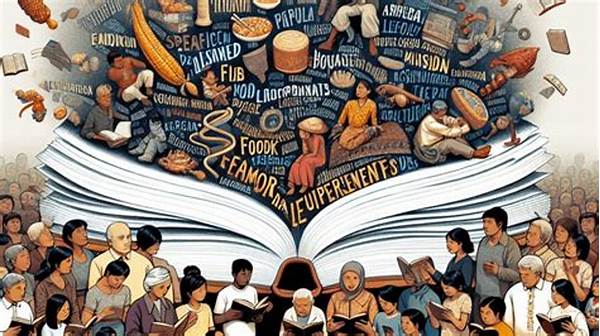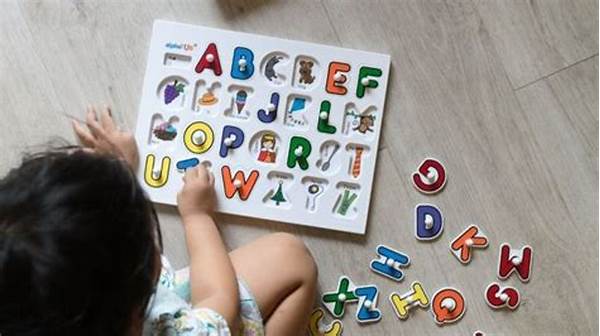Once upon a time, in a bustling town known for its love of languages, there existed an extraordinary group of people—teachers. They weren’t just any teachers; they were maestros in the art of language. With their magical chalks and boundless passion, they turned everyday classrooms into hubs of exploration and creativity. Each day, these teachers embarked on new adventures with their students, unlocking the secrets of words and the wonders of communication. Get ready, folks, as we dive into the fascinating world of teacher roles in language skill improvement.
Read Now : Encouraging Verbal Expression In Toddlers
The Guiding Stars: Teachers Shaping Language Prodigies
Picture this: students strolling into class, a mix of nervous energy and excitement in the air. Teachers, like captains steering a ship, guide their students through the vast ocean of language. They wear many hats—storyteller, coach, mentor—crafting an environment where curiosity blooms. The teacher roles in language skill improvement aren’t just about handing out grammar rules; it’s about being the spark that lights the fire of learning. As students navigate the complexities of language, these educators provide the tools to decode linguistic puzzles, transforming confusion into comprehension.
Their classrooms are buzzing with activities: role plays, debates, and group discussions, each one meticulously designed to enhance language skills. You see, the teacher roles in language skill improvement involve crafting lessons that cater to diverse learning styles. Visual learners get charts and diagrams, while auditory learners revel in spoken word activities. And let’s not forget the kinaesthetic learners, who thrive through interactive games. This kaleidoscope of methods ensures that each student finds their rhythm in the symphony of language.
Teachers, with an ear for slang and contemporary lingo, bring the language to life. They slip modern expressions into lessons, turning jargon into jewels of understanding. By incorporating real-world language into the classroom, teacher roles in language skill improvement stretch beyond textbooks. They prepare students not just for exams, but for conversations in coffee shops, business meetings, and video calls around the world. These educators are the unsung heroes, shaping the next generation of confident communicators.
Teacher Roles Unpacked: Slang Style Insights
1. Picture teachers as word wizards, conjuring spells with syntax to make language tick. The teacher roles in language skill improvement? Pure magic, folks.
2. Teachers are like DJs, mixing traditional grammar with slang beats. They’re spinning tracks where old-school rules meet new-school cool. Yeah, that’s teacher roles in language skill improvement.
3. Ever seen a teacher juggle vocab, grammar, and fun? It’s like a circus act—teacher roles in language skill improvement bring juggling to a whole new level.
4. Teachers as tour guides in the world of words, turning each lesson into a thrilling expedition. Teacher roles in language skill improvement? Your passport to language adventures.
5. Imagine teachers as language DJs, remixing lessons with slang twists, giving students the ultimate language groove. The teacher roles in language skill improvement? Always keeping it fresh.
Teachers: The Architects of Language Learning
In the high-paced rollercoaster of education, teachers are the architects crafting the blueprint of linguistic mastery. Now, it ain’t just about scribbling verbs and nouns on the board; it’s about building a world where language is alive. Every word is a brick, every lesson a foundation. The teacher roles in language skill improvement involve sketching out strategies, embedding vocabulary into the heart of learning.
These educators draw on a reservoir of creativity. It’s like they’ve got a treasure chest of surprises—interactive games, creative storytelling, catchy jingles—to unleash the full potential of their students. With an emphasis on experiential learning, lessons leap off the page and into real life. Teacher roles in language skill improvement? More like orchestrating a symphony where each student plays a unique part. This dynamic approach transforms classrooms into fertile grounds for linguistic growth.
Read Now : Bestselling Mystery Series With Female Protagonists
Teachers: The Unsung Heroes of Language Development
In the world of learning, teachers are the unsung heroes, orchestrating symphonies of words and harmonies of sounds. Their mantra? Bringing language to life with vivid colors. Their toolkit? A blend of textbooks and the unexpected—a dash of slang, a sprinkle of humor. These teacher roles in language skill improvement are all about breaking barriers between formal and informal, turning every lesson into a captivating story.
Imagine a classroom where grammar rules do the cha-cha with idioms. Teachers, the maestros of this dance, weave intricate structures that mesmerize students. They decode linguistic labyrinths, ensuring the teacher roles in language skill improvement are dynamic and innovative. With a finger on the pulse of contemporary lingo, they craft experiences where language isn’t just learned—it’s lived. In the world of education, these educators stand as giants, carving paths where students don’t just follow; they lead.
Language Guardians: Teachers on the Frontline
That’s the tea—teachers are the frontline guardians, navigating the language battleground. They’re warriors armed with pens and passion, immersing students in the world of words. With every tik-tok of the classroom clock, they unfold new chapters. The teacher roles in language skill improvement? Transforming lessons into life hacks, equipping students with the skills to tackle any linguistic challenge.
In classrooms buzzing like beehives, where creativity and innovation thrive, teachers are the kings and queens of cool. Their lessons aren’t just lessons; they’re life skills on steroids. They’ve mastered the art of slang, breaking the monotony of learning to be relatable, engaging. Imagine students leaving class with a toolkit not just for exams, but for life. That’s the essence, the core of teacher roles in language skill improvement.
Bringing It All Together: Teachers as Language Trailblazers
Teachers, the trailblazers in the language realm, are the catalysts of change. They’re the powerhouses, driving the evolution of language education with dynamism and flair. The teacher roles in language skill improvement stretch beyond conventional teaching; they embody innovation. Lessons are metamorphosed into interactive experiences, sparking a love for language that goes beyond the classroom confines.
With a knack for the contemporary, teachers ride the waves of slang and trendy lingo, seamlessly integrating it into their teachings. Lessons become conversations, dialogues where students are encouraged to express themselves freely. It’s not about memorizing; it’s about understanding context, nuance, and the emotion behind words. Teacher roles in language skill improvement redefine learning, making language an adventure rather than a task.
Summary: Teachers Steering the Language Ship
In essence, teachers are the navigators guiding students through the vast sea of language. Steering their ships in calm and storm, teachers ensure that every student reaches the shore of understanding. The teacher roles in language skill improvement provide the compass, pointing towards effective communication and confidence. Every lesson, a step forward; every word, a tool.
As the world evolves, so does language. Teachers stand at the crossroads, the conduits ensuring the language adapts and evolves. The teacher roles in language skill improvement emphasize the melding of traditional and modern, creating spaces where students not only learn but thrive. These educators don’t just impart knowledge; they inspire futures where language and life coexist harmoniously. That’s the real epic saga of teacher roles in language skill improvement—creating storytellers, communicators, and trailblazers.




